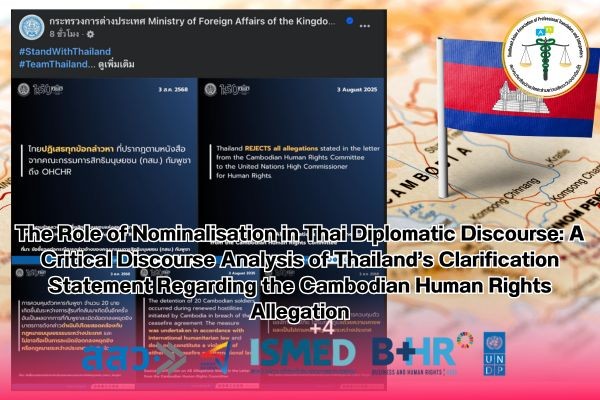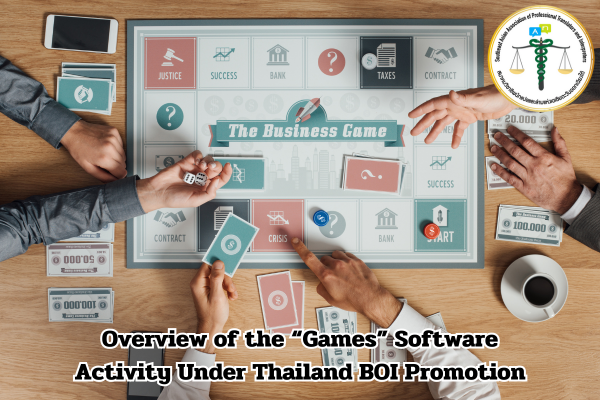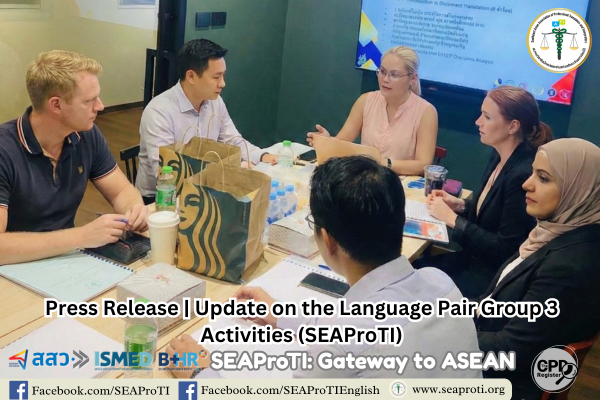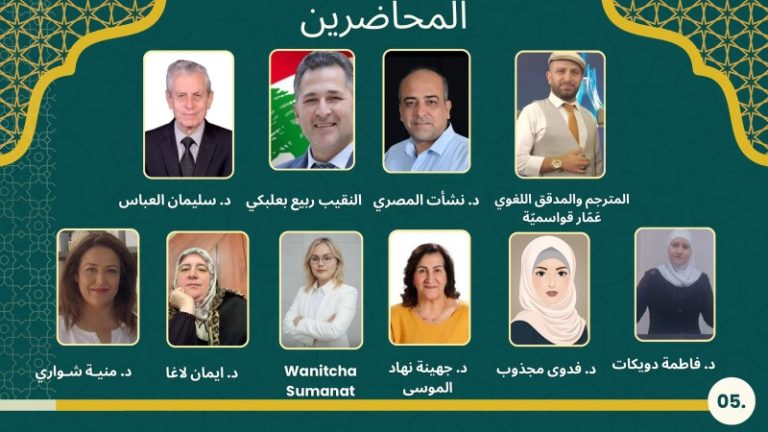The Role of Nominalisation in Thai Diplomatic Discourse:
A Critical Discourse Analysis of Thailand’s Clarification Statement Regarding the Cambodian Human Rights Allegation
By Wanitcha Sumanat, president of the Southeast Asian Association of Professional Translators and Interpreters
3 August 2025, Bangkok – This article examines the use of nominalisation in Thailand’s official clarification statement issued on 2 August 2025 in response to allegations made by the Cambodian Human Rights Committee (CHRC). Using the lens of Critical Discourse Analysis (CDA), the article highlights how nominalisation functions to reframe conflict narratives, minimise agency, and construct institutional authority. The analysis reveals that Thailand’s rhetorical strategy uses nominalised forms to depersonalise actions, legitimise state conduct, and mitigate direct blame, thereby contributing to a diplomatic discourse that maintains moral high ground while avoiding confrontation.
Introduction
Diplomatic discourse often seeks to navigate complex tensions between states using carefully crafted language. One salient linguistic strategy employed in official statements is nominalisation—the conversion of verbs or adjectives into nouns—which allows for a shift in focus from actors to actions or abstract processes (Fairclough, 2003). This technique is particularly relevant in contexts of political conflict, where assigning or avoiding blame can have legal and diplomatic consequences.
This article analyzes the 2025 Thai government statement responding to the Cambodian Human Rights Committee’s (CHRC) letter to the UN High Commissioner for Human Rights. Through the framework of Critical Discourse Analysis (CDA), we explore how nominalisation plays a strategic role in shaping narratives, concealing agency, and reinforcing Thailand’s diplomatic stance.
Nominalisation in Political Discourse
Nominalisation, as Halliday (2004) argues, allows writers to express processes or qualities as abstract nouns, which in turn can obscure the subject responsible for an action. In political and legal discourse, this strategy can de-escalate blame or lend institutional weight to certain actions or policies. When nominalisations dominate the grammar of a text, actions are treated as “facts” or “events” rather than choices made by actors (Billig, 2008).
Methodology
The source text is the bilingual (Thai–English) official statement issued by Thailand’s Ministry of Foreign Affairs on 2 August 2025. A comparative CDA is applied, focusing on lexical choices, syntactic structure, and the discursive function of nominalisation. Emphasis is placed on identifying nominalised constructions in both versions and examining their role in the narrative framing.
Findings and Analysis
Depersonalisation and Agency Obfuscation
The statement frequently uses nominalisation to avoid explicitly attributing blame. For example:
- “The detention of 20 Cambodian soldiers occurred during renewed hostilities initiated by Cambodia…”
Here, “detention” (from detain) and “hostilities” (from hostile) replace active verbs, which avoids framing Thailand as the actor and instead presents the situation as emergent or circumstantial.
Similarly, in Thai:
- “การควบคุมตัวทหารกัมพูชาจำนวน 20 นาย เกิดขึ้นในระหว่างการสู้รบ…”
The phrase “การควบคุมตัว” nominalises the action, neutralising the act of detainment and distancing the Thai authorities from potentially contentious actions.
Recontextualisation and Event Framing
The narrative of the ceasefire is constructed using nominalised forms:
- “การละเมิดข้อตกลงหยุดยิง”
- “This breach constituted a failure to uphold Cambodia’s obligation…”
Such phrases frame violations as abstract events, not as choices made by individuals or military units. This shifts attention from agency to legalistic categories, aligning the narrative with international law rather than military aggression.
Legitimisation through Institutional Language
The statement invokes legal frameworks such as the Geneva Conventions and organisations like the ICRC and OHCHR, employing nominalisations to reinforce authority:
- “The repatriation was carried out in accordance with the humanitarian principles under the Geneva Conventions of 1949…”
Here, “repatriation” and “principles” convert dynamic acts into codified norms. The Thai version mirrors this:
- “…ตามหลักมนุษยธรรมที่ระบุในอนุสัญญาเจนีวา ค.ศ. 1949…”
This rhetorical strategy enhances Thailand’s international legitimacy and moral standing.
Moral Positioning and Binary Framing
Nominalisation also contributes to constructing moral binaries. Thailand is portrayed as lawful, respectful of humanitarian norms, and willing to cooperate. In contrast, Cambodia is framed as the violator through statements like:
- “Cambodia breached this ceasefire agreement…”
Even though this clause uses an active verb, subsequent explanation reframes it via nominalised language:
- “This breach constituted a failure to uphold Cambodia’s obligation…”
This legalistic framing supports a narrative in which Thailand responds lawfully to aggression, positioning itself on higher moral ground.
Discussion
The strategic use of nominalisation in the Thai statement demonstrates the power of language in diplomacy. By abstracting actions and foregrounding processes, the text constructs a version of events that:
- legitimises Thailand’s conduct,
- softens confrontational tone,
- and distances the state from potentially contentious military actions.
Such discourse moves beyond factual recounting into discursive control, reinforcing national identity and moral legitimacy in the eyes of both domestic and international audiences.
Conclusion
Nominalisation plays a central role in shaping state narratives in conflict settings. In the Thai government’s 2025 clarification statement, it functions to obscure agency, reframe events, and institutionalise legitimacy. Through this linguistic device, Thailand constructs a diplomatic discourse that avoids escalation, resists blame, and upholds its international image. CDA reveals how such strategies contribute not only to immediate conflict communication but also to broader geopolitical positioning.
References
- Billig, M. (2008). The language of critical discourse analysis: The case of nominalization. Discourse & Society, 19(6), 783–800. https://doi.org/10.1177/0957926508095894
- Fairclough, N. (2003). Analysing discourse: Textual analysis for social research. London: Routledge.
- Halliday, M. A. K., & Matthiessen, C. M. I. M. (2004). An introduction to functional grammar (3rd ed.). London: Arnold.
- Ministry of Foreign Affairs of Thailand. (2025, August 2). Clarification on all allegations stated in the letter from the Cambodian Human Rights Committee. https://www.mfa.go.th
SEAProTI’s certified translators, translation certification providers, and certified interpreters:
The Southeast Asian Association of Professional Translators and Interpreters (SEAProTI) has officially announced the criteria and qualifications for individuals to register as “Certified Translators,” “Translation Certification Providers,” and “Certified Interpreters” under the association’s regulations. These guidelines are detailed in Sections 9 and 10 of the Royal Thai Government Gazette, issued by the Secretariat of the Cabinet under the Office of the Prime Minister of the Kingdom of Thailand, dated July 25, 2024, Volume 141, Part 66 Ng, Page 100. The Royal Thai Government Gazette
บทบาทของ Nominalisation ในวาทกรรมการทูตของไทย: การวิเคราะห์เชิงวาทกรรมวิพากษ์จากถ้อยแถลงกรณีกัมพูชาร้องเรียนเรื่องสิทธิมนุษยชน
ภาษาทางการทูตเป็นเครื่องมือสำคัญในการบริหารจัดการความขัดแย้งระหว่างรัฐ โดยเฉพาะเมื่อมีประเด็นด้านสิทธิมนุษยชนและการสู้รบ การใช้ภาษาในถ้อยแถลงของรัฐจึงไม่ได้เป็นเพียงการสื่อสารข้อเท็จจริงเท่านั้น แต่ยังเป็นการจัดวางอำนาจ สร้างภาพลักษณ์ และควบคุมการตีความของสาธารณะ หนึ่งในกลวิธีทางภาษาเชิงวาทกรรมที่พบได้บ่อยคือ Nominalisation หรือการทำให้การกระทำ (verbs) หรือคุณลักษณะ (adjectives) กลายเป็นคำนาม (nouns) ซึ่งช่วยให้รัฐสามารถเลี่ยงการระบุผู้กระทำโดยตรง และเปลี่ยนการกระทำให้กลายเป็น “เหตุการณ์” หรือ “ข้อเท็จจริง” ที่ดูเป็นกลาง (Fairclough, 2003; Halliday, 2004)
ตามแนวคิดของ Halliday (2004) และ Fairclough (2003), Nominalisation ช่วยให้ผู้เขียนหรือผู้พูดสามารถแปลงการกระทำหรือกระบวนการให้กลายเป็นคำนาม ซึ่งมักจะลดทอนบทบาทของผู้กระทำลง และเพิ่มความเป็นทางการของถ้อยความ ในทางการเมืองและกฎหมาย การใช้ Nominalisation ช่วยให้การสื่อสารมีลักษณะที่ลดการโต้แย้งโดยตรง และเพิ่มน้ำหนักของเนื้อหาในเชิงสถาบัน เช่น การพูดว่า “การละเมิดข้อตกลงหยุดยิง” แทนที่จะระบุว่า “ฝ่ายกัมพูชาได้ละเมิดข้อตกลง”
บทความนี้ใช้วิธี วิเคราะห์วาทกรรมวิพากษ์ (CDA) โดยพิจารณาจากถ้อยแถลงสองภาษา (ไทย–อังกฤษ) ที่เผยแพร่โดยกระทรวงการต่างประเทศไทยเมื่อวันที่ 2 สิงหาคม 2568 ซึ่งเป็นการตอบโต้หนังสือร้องเรียนจากคณะกรรมการสิทธิมนุษยชนกัมพูชา ต่อสำนักงานข้าหลวงใหญ่เพื่อสิทธิมนุษยชนแห่งสหประชาชาติ การวิเคราะห์เน้นไปที่การใช้ Nominalisation และโครงสร้างทางไวยากรณ์ที่เกี่ยวข้อง โดยพิจารณาบริบทเชิงการเมืองและวาทกรรมของรัฐ
การลดความเด่นของผู้กระทำ
ตัวอย่างที่พบได้ชัดเจนคือ:
- “การควบคุมตัวทหารกัมพูชาจำนวน 20 นายเกิดขึ้นในระหว่างการสู้รบ…”
หรือในภาษาอังกฤษ: - “The detention of 20 Cambodian soldiers occurred during renewed hostilities…”
การใช้คำว่า “การควบคุมตัว” และ “detention” ทำให้ไม่มีการระบุว่าใครเป็นผู้กระทำโดยตรง และยังสร้างภาพว่าการกระทำนั้นเป็นเพียง “เหตุการณ์ที่เกิดขึ้น” มากกว่าการตัดสินใจของฝ่ายหนึ่งฝ่ายใด
การจัดกรอบเหตุการณ์ใหม่ (Recontextualisation)
ในประโยค:
- “การละเมิดข้อตกลงหยุดยิง”
- “This breach constituted a failure to uphold Cambodia’s obligation…”
การเปลี่ยนกริยาให้เป็นคำนาม (ละเมิด → การละเมิด, breach → this breach) ทำให้ความรับผิดชอบต่อการกระทำถูกลดทอนลง และปรับให้เป็นประเด็นทางกฎหมายมากกว่าความขัดแย้งเชิงอารมณ์
การสร้างความชอบธรรมผ่านภาษาเชิงสถาบัน (ภาษาที่ใช้โดยองค์กรหรือหน่วยงานราชการ)
การใช้คำว่า:
- “ตามหลักมนุษยธรรมที่ระบุในอนุสัญญาเจนีวา ค.ศ. 1949”
- “in accordance with the humanitarian principles under the Geneva Conventions of 1949”
แสดงให้เห็นว่า Nominalisation ช่วยสร้างความชอบธรรม (legitimacy) ด้วยการเชื่อมโยงถ้อยแถลงกับสถาบันระหว่างประเทศ โดยใช้ภาษาทางกฎหมายที่ยืนยันว่ารัฐไทยปฏิบัติตามมาตรฐานสากล
การจัดลำดับศีลธรรม (Moral Hierarchy)
การใช้คำว่า “การส่งตัวกลับ” (repatriation), “การดูแล” (treatment) และ “การปฏิบัติตามหลักมนุษยธรรม” สร้างภาพว่าประเทศไทยมีความเมตตา เป็นฝ่ายปฏิบัติตามกฎหมาย และยึดหลักมนุษยธรรม ตรงข้ามกับภาพของฝ่ายกัมพูชาที่ถูกกล่าวหาว่าละเมิดข้อตกลง
อภิปราย
จากการวิเคราะห์พบว่า Nominalisation มีบทบาทสำคัญในสร้างวาทกรรมที่:
- ลดความรุนแรงของการกล่าวโทษโดยตรง
- สร้างภาพลักษณ์ของรัฐไทยในฐานะผู้เคารพกฎหมายและมนุษยธรรม
- เสริมความชอบธรรมผ่านการอ้างอิงสถาบันระหว่างประเทศ
- หลีกเลี่ยงการเผชิญหน้าโดยตรงและคงไว้ซึ่งภาพลักษณ์ทางการทูต
แนวทางนี้ช่วยให้ไทยสามารถควบคุมการเล่าเรื่อง (discursive control) และสร้างความเข้าใจในระดับนานาชาติได้อย่างมีประสิทธิภาพ
สรุป
Nominalisation ไม่ได้เป็นเพียงปรากฏการณ์ทางภาษา แต่เป็นกลยุทธ์ในการควบคุมความหมาย วาทกรรม และอำนาจ ในกรณีนี้ ถ้อยแถลงของรัฐบาลไทยได้ใช้ Nominalisation อย่างมีประสิทธิภาพเพื่อลดความขัดแย้ง สร้างความน่าเชื่อถือ และวางตำแหน่งประเทศไทยในฐานะรัฐที่เคารพกฎหมายระหว่างประเทศและหลักมนุษยธรรม
บรรณานุกรม
- Billig, M. (2008). The language of critical discourse analysis: The case of nominalization. Discourse & Society, 19(6), 783–800. https://doi.org/10.1177/0957926508095894
- Fairclough, N. (2003). Analysing discourse: Textual analysis for social research. London: Routledge.
- Halliday, M. A. K., & Matthiessen, C. M. I. M. (2004). An introduction to functional grammar (3rd ed.). London: Arnold.
- กระทรวงการต่างประเทศ. (2568, 2 สิงหาคม). ข้อชี้แจงต่อกรณีการกล่าวอ้างของคณะกรรมการสิทธิมนุษยชนกัมพูชา. https://www.mfa.go.th
เกี่ยวกับนักแปลรับรอง ผู้รับรองการแปล และล่ามรับรองของสมาคมวิชาชีพนักแปลและล่ามแห่งเอเชียตะวันออกเฉียงใต้
สมาคมวิชาชีพนักแปลและล่ามแห่งเอเชียตะวันออกเฉียงใต้ (SEAProTI) ได้ประกาศหลักเกณฑ์และคุณสมบัติผู้ที่ขึ้นทะเบียนเป็น “นักแปลรับรอง (Certified Translators) และผู้รับรองการแปล (Translation Certification Providers) และล่ามรับรอง (Certified Interpreters)” ของสมาคม หมวดที่ 9 และหมวดที่ 10 ในราชกิจจานุเบกษา ของสำนักเลขาธิการคณะรัฐมนตรี ในสำนักนายกรัฐมนตรี แห่งราชอาณาจักรไทย ลงวันที่ 25 ก.ค. 2567 เล่มที่ 141 ตอนที่ 66 ง หน้า 100 อ่านฉบับเต็มได้ที่: นักแปลรับรอง ผู้รับรองการแปล และล่ามรับรอง

























